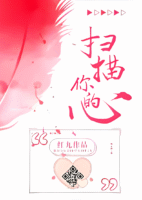Farm System C43
by MarineTLChapter 43
Longxia News Broadcast: Implementation Methods and Planting Tips for Residents Growing Their Own Food.
At 7 p.m., the Longxia News Broadcast aired a ten-minute segment focused on balcony gardening.
“Balcony gardening is great. We have a small yard; we can clear it and plant some Chinese cabbage…”
In Dongyun City, Liaosheng Province, Song Shufen was knitting a sweater while sharing her thoughts on the news. She and Wang Mingjun were both retired teachers from Dongyun No.1 High School. Ever since the Harma Storm made landfall in Yunyu’s two provinces three months ago, she had been closely following current affairs.
Although Liaosheng Province is the northernmost part of Longxia, the Harma Storm crossed the Alashan Mountains. She wasn’t very confident about Liaosheng’s geographical safety. Over the past two months, she had hoarded two wardrobes full of rice like a hamster, but still didn’t feel very secure.
“We could set up a plastic greenhouse in the yard and even grow some garlic sprouts,” Song Shufen continued.
They lived on the first floor with a small yard that had previously stored some furniture and miscellaneous items. Now that the yard was cleared, there was more than half of it available… the more she talked, the more feasible it sounded.
“We could also raise chickens,” Wang Mingjun suggested.
As they chatted, the phone rang twice.
Wang Mingjun clicked it open—
[No.1 High School Family Compound: Regarding the implementation of balcony gardening to reduce the national planting burden…]
This message was from the compound management. The main idea was straightforward: encourage residents of the compound to dig soil and plant trees, which would not only provide some protection against acid rain but also help save expenses.
After the management sent the message, some residents called for a trip to Jiuyun Mountain to dig soil.
Wang Mingjun asked after reading it, “Shall we go?”
“Let’s go.”
They were free anyway, and going to Jiuyun Mountain would be a good way to relax.
…
Jiuyun Mountain, located on the outskirts of Dongyun City, is a wild mountain park covering over 30,000 mu (about 2,000 hectares) overgrown with weeds.
By the time Wang Mingjun and Song Shufen arrived, many men and women were already there. Everyone wore a uniform outfit: sun hats, woven bags, and small shovels.
Everyone was prepared to be stopped by park management. To their surprise, the park staff not only didn’t intervene but even provided towels and hot water to citizens. Their main considerations were—
Responding to the national self-planting policy.
Loosening up the barren mountain soil.
According to meteorological forecasts, the Harma Storm would reach Liaosheng within six months. Rather than letting acid rain erode the land, it was better to have residents contribute by planting.
This acted like a signal, and over the next three hours, more citizens joined the soil-digging and soil-collecting efforts. Acid rain is highly corrosive to soil, making uncontaminated soil before the acid rain all the more precious.
“Xinxin Property: Regarding rooftop greenhouse plans and residents’ opinions.”
“Huilong Township Government: Suggest farmers purchase seeds and prepare for vegetable disaster prevention.”
“Jianhe Quality Supervision Bureau:…”
…
While Dongyun City followed suit with soil digging, urban property managers, township governments, and city governments across Longxia all plunged into vigorous planting infrastructure efforts.
With acid rain worldwide, large-scale grain planting was impossible. But crops like garlic sprouts and cherry tomatoes could grow anywhere there was soil. Plus, grown indoors on balconies, they were protected from acid rain.
Sales of Longbao’s “nutrient soil” and “planting soil” products skyrocketed.
On May 20, Longbao’s sales ranked: No.1 nutrient soil, No.2 vegetable seeds, No.3 balcony flowerpots.
These were relatively niche industries, but under the Longxia government’s drive, they surged to the top online.
Residents nationwide watched Longxia’s policies with one thought in mind: trending products.
Many netizens thought creatively. Besides growing vegetables on balconies, some were raising chickens and ducks there.
With the food crisis, growing your own vegetables and raising your own eggs seemed possible… Some residents even considered raising pigs, but given the pigs’ food consumption, they reluctantly gave up.
In short, under Longxia’s policies, residents nationwide mobilized all efforts to start planting.
Amid this mass planting, on May 25, the Longxia Meteorological Station announced: [Harma Storm will make landfall in Jiangsu, Zhejiang, and Anhui provinces from May 28 to June 1. Residents in these provinces must prepare for acid rain protection…]
This was the fourth acid rain warning of the year.
…
“It’s getting cloudy. They said it’ll rain early tomorrow…”
At 5 p.m. on May 27, outside a planting base in Pingshui Town, Su Province, Wang Mengying spoke with some distress.
Since the meteorological bureau issued the disaster warning, the atmosphere at home had been very low. Five months ago, the family had responded to government policy by contracting 500 mu of Longfeng wheat. Now, the wheat was half a person’s height.
According to timing, the wheat was expected to mature by mid-July, about a month away. This batch was not suitable for early harvest; if it was damaged by acid rain, six months of hard work would be in vain… This felt like a sharp pain, deeply troubling the family.
Seeing Wang Xuecai silent, Wang Mengying sat beside him and asked, “Should we harvest early?”
Wang Xuecai lit a cigarette. “One more day won’t help.”
“I asked this morning. Our contract has a natural disaster clause. If the crops get rained on, the state provides some compensation…” Wang Mengying started to talk about state compensation but stopped midway.
She had reviewed the contract yesterday. Longfeng 001 did have various compensations for disaster-related losses. But watching the wheat grow from seed to green ears, though not yet mature, the grains were plump. Wang Mengying didn’t understand wheat much but could tell the quality was excellent.
Now with the nation in crisis, and this disaster not caused by seed quality, deciding to claim compensation was very difficult.
While pondering, Wang Xuecai stood up. “The government said these seeds resist water and acid. Maybe they’ll survive.”
Wang Mengying said nothing.
She had been following news from Longnan recently.
Kunshan’s flower farms, Sichuan’s orange groves, Yusheng’s rice fields… all large-scale plantings seemed invincible, but acid rain’s damage after arrival was terrifying.
Half an hour later, the two left the agricultural base.
Along the way, they saw many farmers covering their crops with bags and nets, just as Wang Mengying had thought. Though they had planting compensation, these crops grew grain by grain. If possible, they didn’t want to see their crops damaged.
At 9 p.m., the two returned to their courtyard.
Their home was near the mountainside. To avoid landslides, the three of them packed up their valuables and went to the village theater.
The theater was located on high ground, and many villagers were already lying on the ground with blankets.
“Uncle Wang.”
“Here comes Uncle Wang.”
…
Wang Xuecai was respected and admired by everyone, and when the villagers saw him, they greeted him warmly.
“Hmm.”
Wang Xuecai chatted with the villagers for a while, then sat down in the corner that had been arranged for him.
Wang Mengying brought over a bucket of instant noodles.
More and more people gathered in the theater. At 1 a.m., a sudden thunderclap sounded outside, and everyone looked out the window.
By then, a light rain had started, gradually growing heavier.
A villager peeled half an apple and placed it at the door as an experiment. Soon, the apple had turned completely black.
“It’s really acid rain,” the villagers sighed.
“Do you think the wheat outside will survive?”
“No one knows.”
“Our family leased out our land for shares…”
…
The villagers shifted the conversation to wheat planting. Due to government policy, some chose to grow their shares themselves, while others opted to rent out their land. Now those who rented felt lucky, while those with shares or who planted themselves felt very distressed.
Everyone stared out the door, uncertain how long the rain would last.
The acid rain in Jiangsu, Zhejiang, and Anhui provinces continued the devastation seen in Yunyu and Central South regions. Since noon on May 29, rainfall had surged from 220mm to 590mm, second only to the two Yunyu provinces.
On May 31, the rain finally lessened.
On June 1, the rain stopped.
“It felt like walking through the gates of hell.”
“The whole area is flooded.”
“Our tricycle is ruined.”
…
Only after most of the water was drained did the villagers dare to leave the theater. At this point, the village looked as tragic as it did on TV.
Pingshui Town was mainly mountainous, and except for a few low-lying planting areas, most wheat was grown on hilltops and mid-mountain slopes. Wang Mengying and Wang Xuecai toured their home briefly before heading straight to the agricultural base.
The lower wheat fields at the base were flooded. Though the higher ground had been repeatedly pounded by rain, from a distance it looked like rice paddies growing in water.
They went up to check. The wheat roots were remarkably resilient.
“Should be okay?” Wang Mengying looked at the fields uncertainly.
After the rain, the wheat fields appeared refreshed and strong.
“I don’t know…” Wang Xuecai pinched a wheat seedling.
Acid rain is corrosive. Based on Yunyu’s experience, even plants that didn’t die immediately would gradually rot within a week. Though the wheat looked fine now, he was still uncertain.
Over the next three days, Wang Xuecai and Wang Mengying hired ten laborers to dig ditches beside the fields to drain all the water.
Three days later, except for a very small portion, all the wheat was still growing stubbornly.
Wang Xuecai opened a before-and-after acid rain comparison chart.
After the acid rain, the wheat had not only suffered no damage but had grown an inch taller.
They visited other areas. Like their own base, aside from a few fallen stalks, the wheat in other fields was also excellent. Some farmers tried to prop up the fallen wheat.
Except for a very few, as long as the roots remained intact, the wheat could continue to grow.
“Good seeds!” Wang Xuecai couldn’t help but praise.
He had prepared for heavy losses, so the wheat’s water resistance gave him great surprise.
Amid the post-disaster recovery, on June 7, the Longxia Ministry of Agriculture issued an announcement: [Soil and Data Testing Report on Longfeng 001 Wheat in Jiangsu, Zhejiang, and Anhui].
According to the report, the soil contained acidic substances, but the acid rain did not combine with the wheat. The wheat was immune to acid rain, with neither roots nor ears showing infection.
This was only a preliminary report; further detailed analysis would be conducted after harvest.
“Amazing!”
“Really not afraid of acid rain.”
“Pretty good water resistance…”
…
The Ministry of Agriculture’s announcement left not only farmers but the entire nation stunned. This wasn’t just a data report—it was a beacon of hope in the food crisis. People opened comparison maps of the disaster areas—
[Image 1]: Devastated plants in Yunyu disaster zone; 70% of rice paddies dead.
[Image 2]: Severe damage in Jiangsu, Zhejiang, Anhui; widespread leaf damage to common flowers; Longfeng 001 wheat fields thriving.
The wheat fields looked like a green oil painting amid the post-disaster ruins, starkly contrasting with the surroundings.
“Wow, thumbs up for Longxia Ministry of Agriculture!”
“Amazing, so resilient.”
“Does this prove acid rain plants can still grow?”
…
Photos of Jiangsu, Zhejiang, and Anhui wheat flooded major news portals.
Besides wheat quality, another topic exploded online: searching for Zhongzhi 002 sweet potato seedlings!!!
Now that Longfeng 001 can grow in acid rain, Zhongzhi 002 must be grown as well, as it’s a related research variety.
Host name: Qin Yun.
Current mission: As a beginner farm, it seems to have no dedicated online direct sales store… To better sell products, please establish an online farm shop!
Requirement: Grow the online shop to 200 million followers.
Mission Reward: Magical vegetable seeds x1.
System Points: 300.06 million.
…
While the whole nation fervently discussed Longfeng’s resilience, the system updated inside Fengshan Farm.







![Good Baby [Quick Transmigration] Cover](https://marinetl.xyz/wp-content/uploads/2025/01/Picsart_25-04-16_22-55-55-418-133x200.jpg)


0 Comments